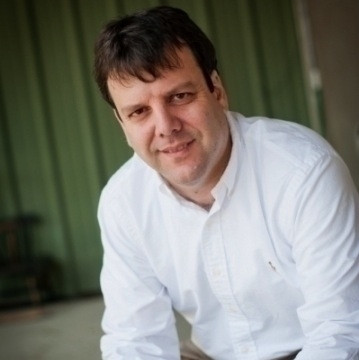Rob Horowitz: Rhode Island’s Self-Esteem Campaign Needs More Money
Tuesday, August 06, 2013
Rob Horowitz, GoLocalProv MINDSETTER™
Determined to boost Rhode Islanders perceptions of their own state,
The Rhode Island Foundation last week launched a $170,000 media campaign, called, ‘Rhode Island: Its All in our Backyard.'
According to Foundation President and CEO Neil Steinberg, “This is an internal marketing campaign designed to change the way Rhode Islanders talk about their state. There are plenty of successes to feel good about right here in our own backyard–global industry and cutting-edge innovation, thriving entrepreneurship, world-class universities and a vibrant arts and culture scene.”
Steinberg went on to say, “The state has a self-esteem problem. Backyard is a fact-based campaign that uses the real stories of real people to remind us of all the good things that are happening here.” Among the individual success stories that will be emphasized in the campaign are those of Cheryl Merchant, the CEO of
Hope Global, a local company that is succeeding in the competitive world market, and
Brown University researcher Jeffrey Morgan, the inventor of a technique for improved manufacturing of petri dishes.
I’m sure that the advocates and sponsors of this campaign to create a more positive state identity by emphasizing our many strong points would be among the first to acknowledge that it is no substitute for directly tackling the pressing problems we face, including one of the highest unemployment rates in the nation. That being said, it is certainly the case that replacing a pervasive fatalism with new-found optimism can produce a more conducive environment to problem-solving, positively impact our business climate and enable people to envision a brighter future.
Further, there is some evidence that campaigns like this one can achieve real results. For example, a 1980’s New Jersey Tourism campaign, ‘New Jersey and You Perfect Together’, featuring then Governor Tom Kean, better known today as the Co-Chair the 9/11 Commission, not only helped increase tourism; it also helped build a more positive sense of self-identity in a state that was also plagued with a poor self-image. Combined with an emerging sense of NJ pride based on the resurgence of Atlantic City with the introduction of Casino Gaming and the completion of the Meadowlands Complex that lured the New York Giants from Manhattan, the commercials brought a measurable and marked improvement in New Jersey residents’ evaluation of the State as a place to live.
But successful media campaigns that work to change deeply ingrained attitudes take lots of money. New Jersey spent millions of dollars over a period of years on its successful campaign and other efforts that have yielded measurable results are nearly always well-funded.
The ambitious and worthy goals outlined by the RI Foundation are simply not matched by the resources to do the job. The rough rule of thumb in today’s cluttered and fragmented media environment is that it takes 1,000 rating points of television advertising to communicate one basic message That is because advertising works on repeated impressions of the same message. In Rhode Island this costs about $100,000, not including the costs of producing a commercial. The impact of that one message will also fade with time. Even if the $170,000 total to be spent is boosted by some contributions of free media time it is simply not sufficient to change attitudes formed over decades. This is especially the case because it looks like the money will be spread out over a number of mediums—leaving even less for the still more effective medium of television.
The hope is that the media campaign will jump-start a continuing state conversation about our strengths. However, to ensure this tough job really gets done, a lot more money must be found.
Rob Horowitz is a strategic and communications consultant who provides general consulting, public relations, direct mail services and polling for national and state issue organizations, various non-profits and elected officials and candidates. He is an Adjunct Professor of Political Science at the University of Rhode Island.
Related Articles
Enjoy this post? Share it with others.



